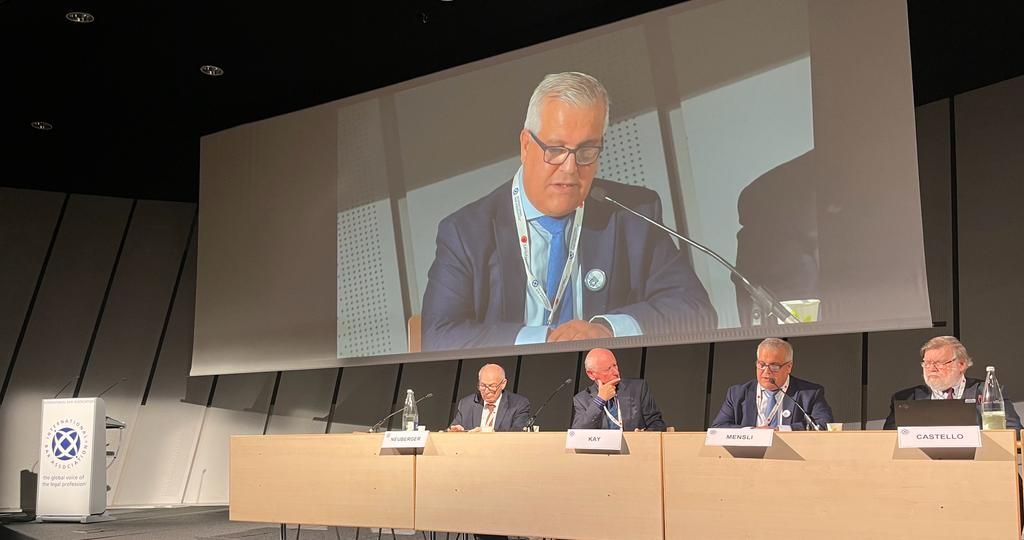الأخبار
LARMO Calls for Eased Sanctions on Assets to Address Humanitarian Needs and Improve the Economy in Libya at the International Bar Association Event in Paris
The Director General of the Libyan Asset Recovery and Management Office (LARMO), Mohamed Mensli, delivered a compelling address at the International Bar Association event held in Paris. Speaking during the session titled “Rule of Law Symposium: Assessing the Impact of Sanctions,” on November 3rd, Mr. Mensli acknowledged the necessity of sanctions and asset freezing in certain instances, while also highlighting the potential peril such actions pose to the general population.
“Libya’s overseas frozen assets have incurred an annual loss of well over USD one billion, significantly impacting our capacity to address critical societal needs. This staggering figure translates into the inability to recruit essential personnel such as doctors, nurses, and teachers. It impedes our efforts to subsidize pensions, curb youth unemployment, build or maintain infra structure, and reduce youth unemployment.” asserted the chairman.
Mr. Mensli urged stakeholders to rally behind LARMO’s strategy, advocating for the phased recovery of looted and neglected Libyan assets. This comprehensive approach entails the collection and responsible investment of these assets, aimed at benefiting the Libyan people in both the short and long term. The process will be meticulously supervised by both internal and external entities. He emphasized the extensive backing for this policy at both local and international levels.
The recent tragedy of severe flooding in the Derna region, alongside a multitude of enduring humanitarian challenges, underscores the pressing requirements in Libya and the need to for such process.
Addressing an audience of esteemed international judges, legal practitioners, and law professionals, Mr. Mensli stressed the injustice faced by Libyans unable to access assets rightfully belonging to them, despite enduring ongoing hardships. “In the past few years alone, we lost billions of dollars —a sum that could have tangibly improved the lives of every Libyan, particularly those in the most vulnerable conditions.”


Leave a Reply